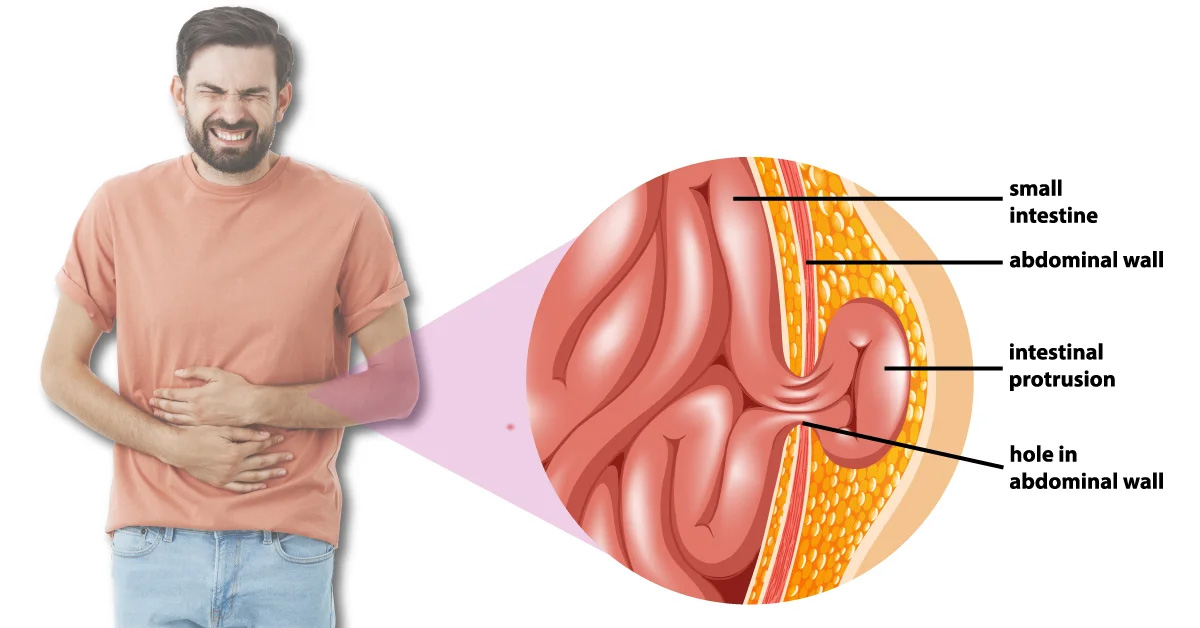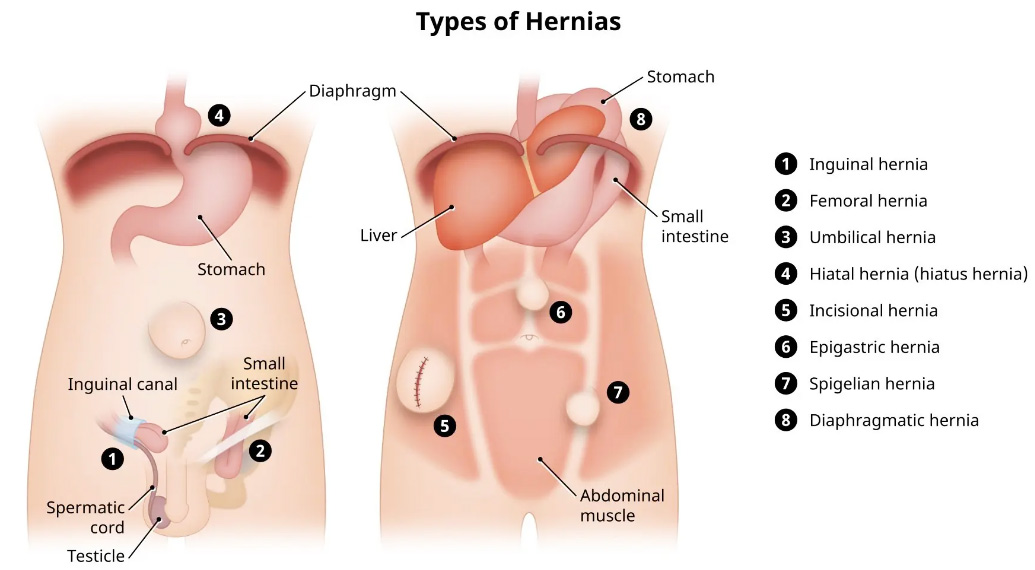What is Hernia?
A hernia occurs when an internal part of the body pushes through a weakness in the muscle or surrounding tissue wall. This condition can happen in various parts of the body, but it's most common in the abdomen. Here's an overview of the different types of hernias, their symptoms, causes, and treatment options:
Types of Hernias
- Inguinal Hernia: Occurs when a part of the intestine or fatty tissue protrudes through the abdominal wall or into the inguinal canal in the groin. This type is more common in men.
- Femoral Hernia: Similar to an inguinal hernia but occurs lower down in the femoral canal, which is more common in women.
- Umbilical Hernia: Happens when part of the intestine or fatty tissue pushes through the abdominal wall near the navel (belly button).
- Hiatal Hernia: Occurs when part of the stomach pushes up through the diaphragm into the chest cavity.
- Incisional Hernia: Can develop after abdominal surgery if the incision doesn’t heal properly.
- Epigastric Hernia: Occurs when fat pushes through the abdominal wall between the navel and the lower part of the rib cage.
- Spigelian Hernia: Rare hernia that occurs along the edge of the rectus abdominis muscle.
Symptoms
- A hernia may first appear as a new lump or bulge in the groin or in the abdominal area. There may be an associated dull ache but usually it is not painful on touch. The lump increases in size on standing, coughing and may be pushed back/disappear on lying down.
- A small painless hernia if left untreated, usually increases in size.
- Occasionally, the hernia may become irreducible i.e. it cannot return to the abdominal cavity on lying down or with manual pushing. At this stage it also becomes painful.
- Sometimes the loop of bowel that has herniated becomes obstructed. This can cause extreme pain, nausea, vomiting, constipation and needs immediate treatment.
- At times the hernia becomes 'strangulated' ( explained further below ) in which the person appears ill with/without fever, nausea, vomiting and extreme pain even to touch. This condition is life threatening and thus a surgical emergency.
Causes
- Weakness in the Muscle Wall: Can be present at birth or develop over time.
- Straining: Heavy lifting, constipation, persistent coughing, or obesity can contribute to the development of a hernia.
- Surgery: Previous surgeries can leave weak spots in the abdominal wall.
- Pregnancy: Increased pressure on the abdominal wall during pregnancy can lead to hernias.
Treatments
- Inguinal Hernia Repair Surgery
- Femoral Hernia Repair Surgery
- Umbilical Hernia Repair Surgery
- Epigastric and Incisional Hernia Repair

